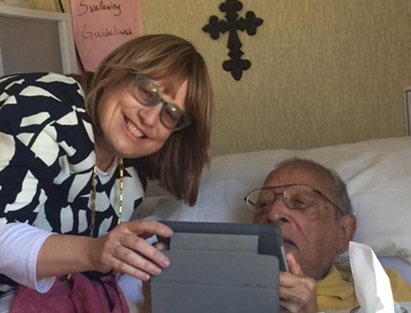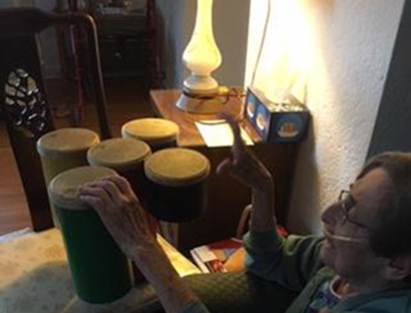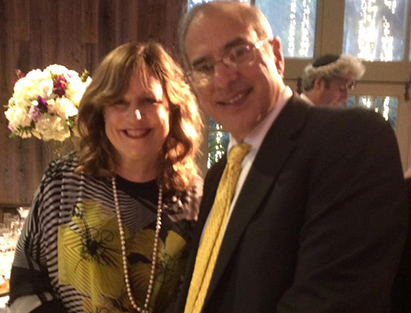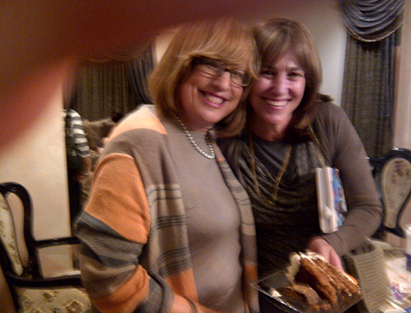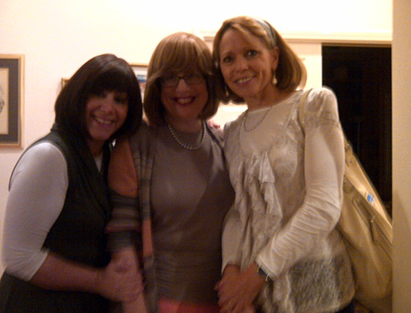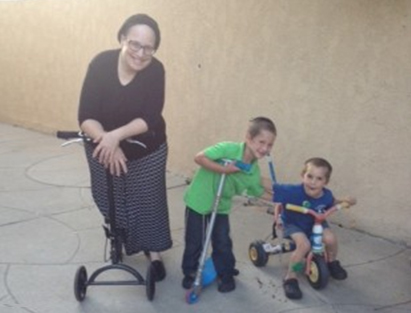UnBottled Thoughts
I have some thoughts inside me that need to be released or “unbottled.” These are thoughts tangential to my usual topic of being a grandmother – a “bubby” in Yiddish. Since I am a grandmother who writes, I find the theme of “writing about writing” to be quite intriguing. Recently, I read a brilliant post by one talented writer/blogger of that topic on her site. I agree with her premise, and I’d like to express my own bottled thoughts (soon to be unbottled) regarding her post.
In her essay, Ms. Bottledworder posits that writers are different in their sensitivities and insecurities from other professionals or tradesmen. For example, when a writer writes an essay, he throws his whole self into the process. Whether or not he writes about himself, he is allowing himself – his voice if you will – to be out there, to be vulnerable to others.
Thus, continues Ms. Bottledworder, when someone reads and critiques the writer’s work, the writer may be hyper-sensitive or at least quite defensive of his or her work, equating the work with the “self.” He takes his work extremely personally and cannot seem to separate the red marks on the paper from red marks on his soul, on his being.
By contrast, Ms. B gives an example of a carpenter who perhaps does not consider his table or chair to be one with himself. Thus, when one might criticize the workmanship of said carpenter, he would not feel hurt or misunderstood. Instead he might say, “yeah, you have a point – I didn’t do such a fine job on sanding the wood, ” or he might say, “You are dead wrong. My table is a work of art, and you’re just jealous.” (not exactly what Ms. Bottledworder said, but I’m taking some liberties with my poetic license…)
Thus, according to the Bottledworder’s Thesis, writers are set apart from the rest of the professional world – in that they have a hard time accepting feedback, and often interpret that feedback — at least at first – as a personal insult.
To some degree, I agree with Ms. B’s thesis. I recall as a student in college, I was super insulted when I received a paper filled with red marks and a huge C at the top. I couldn’t understand why the essay that I had toiled over, written, revised and even showed to my entire family, was not meriting an A or at least a B. And then, when I taught English in a local high school years later, I found that my students were wounded with my feedback of their papers.
So, I do agree that this writers’ sensitivity is a phenomenon. And it may be something unique to writers – possibly due to the passionate nature of the work. In fact, my husband is a computer programmer, and I highly doubt he gets insulted when one of his programs has a bug. It is obvious to all that the software code is not working. There is nothing personal here. Nobody defends themselves and says, “Hey you misunderstood my computer code!” Instead the team sets out to find what is preventing the program from doing the job.
However, I claim that the perception that writers have of their work being a part of them, is not necessarily an impediment to receiving feedback. I think there is another perception — which affects writers and prevents them from being receptive to unpleasant (read: brutal) feedback!
Writers often think that writing is something you do, fix up a bit, and then turn out – like a product. It is this perception that may hold them back.
In fact, writing is a process. Writing is communication between the writer and the world out there. Not with the writer and himself. If the communication is not clear, then the writer must revise – until he is absolutely sure it is clear and effective. He cannot know — at least as a student — without other people’s opinions and feedback. Now, he does not have to listen to the feedback. He can pick and choose what to follow. But still, he benefits from someone else letting him know if – according to their perception – his writing made its points.
The process of writing is just as important as the product that is eventually put forth. One cannot have the product without the process. While the writer goes through the process of gaining feedback, he is learning about himself and others, and he is perfecting his work – not just the present work, but his skill for future communication.
When I write my grandmother (“Bubby” in Yiddish) blogs, I often am surprised at which ones get “likes,” and which ones get ignored (read: unliked?). I think that is because I do not spend as much time on my blog posts as I do on my regular expository writing of longer articles. I do not revise as much. For better or for worse, I am actually putting out my blog before having a second and third pair of eyes read it.
So, I think that good writers are bound to be sensitive, touchy and perhaps somewhat defensive of their work. That is part of their passion and love for their writing. It is a good thing.
But if they move forward eventually into, “How can I look at this feedback as my friend? How can I see whether it will help me take my writing to the next level,” then they can experience the joy of the writing process. They can (I’m talking to myself here, if you haven’t realized!) relax and enjoy the process and work towards improving their drafts each time until they are really satisfied with the final product (until they find another error or typo…)
And here’s my disclaimer: I allow you all to scrutinize my work above. It’s all a process, after all. Thanks for reading. (and check out bottledworder.wordpress.com — it’s a wonderful blog about writing!!)

